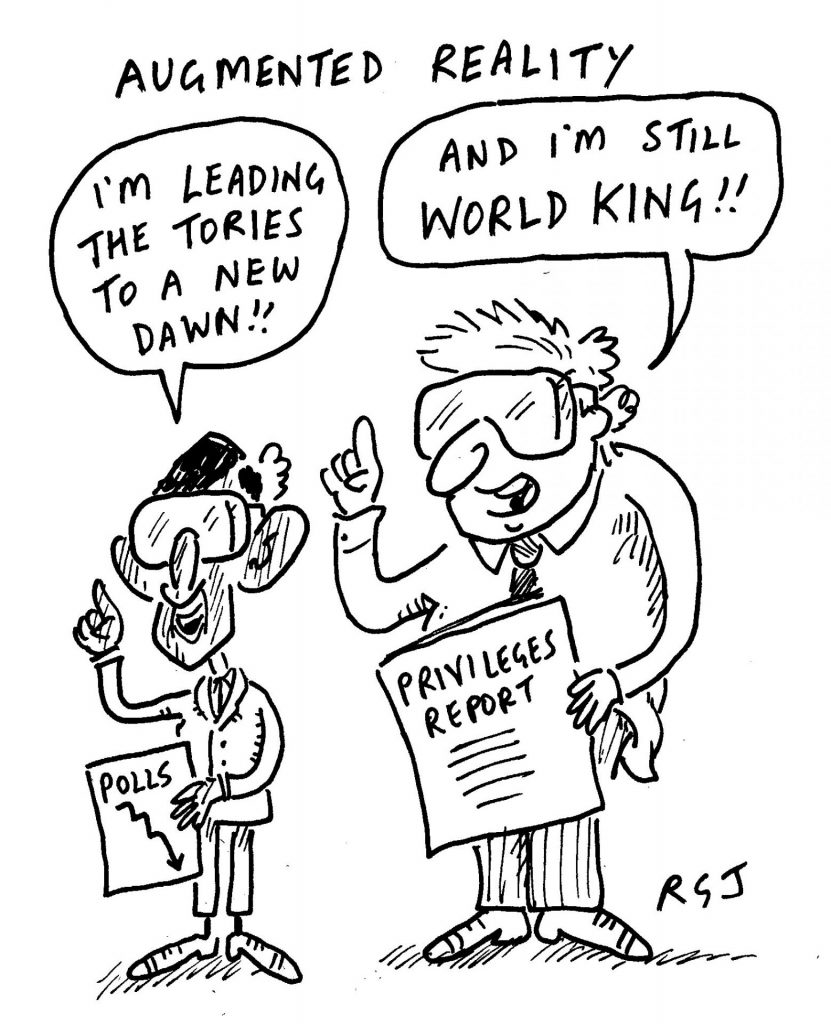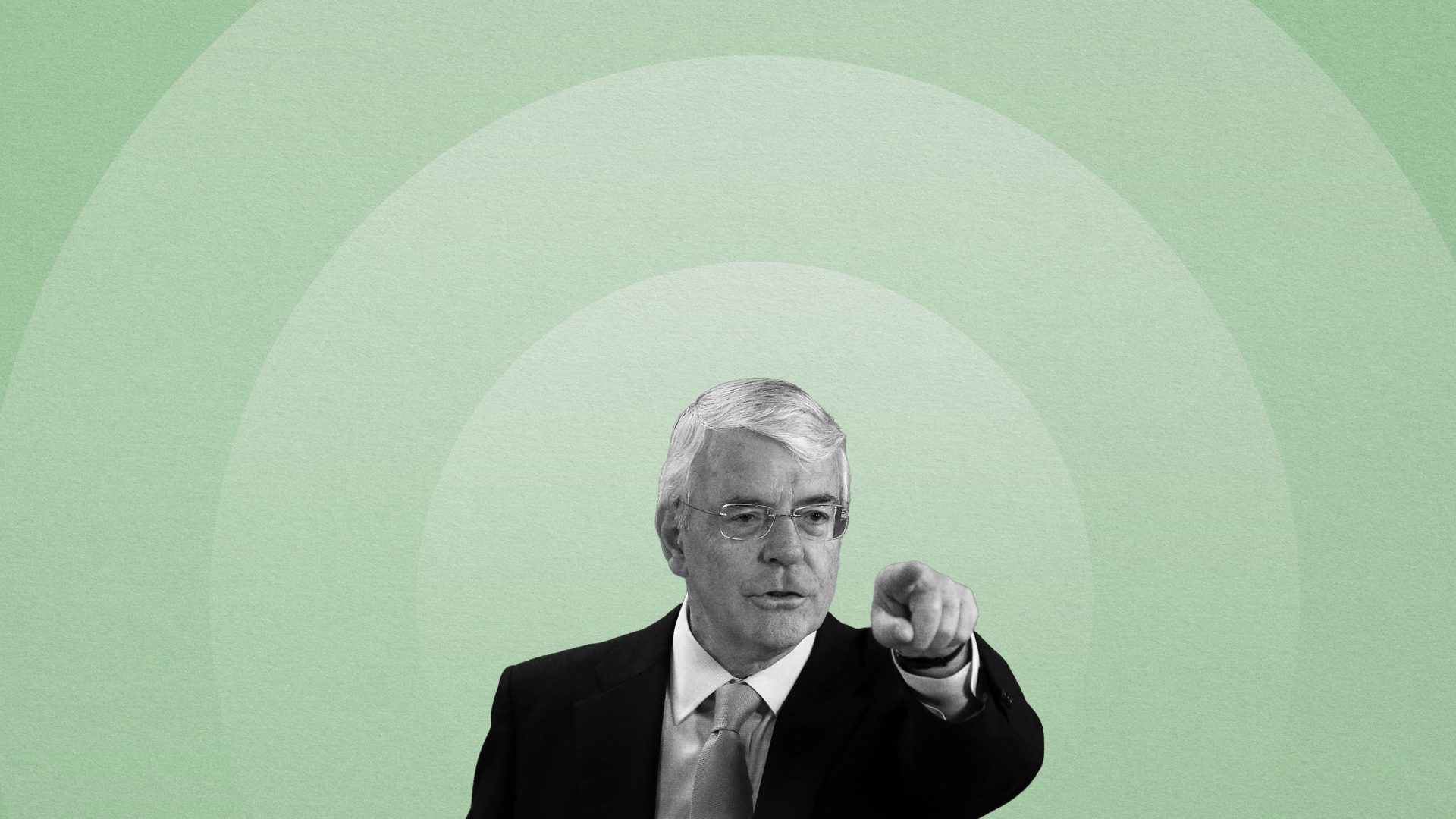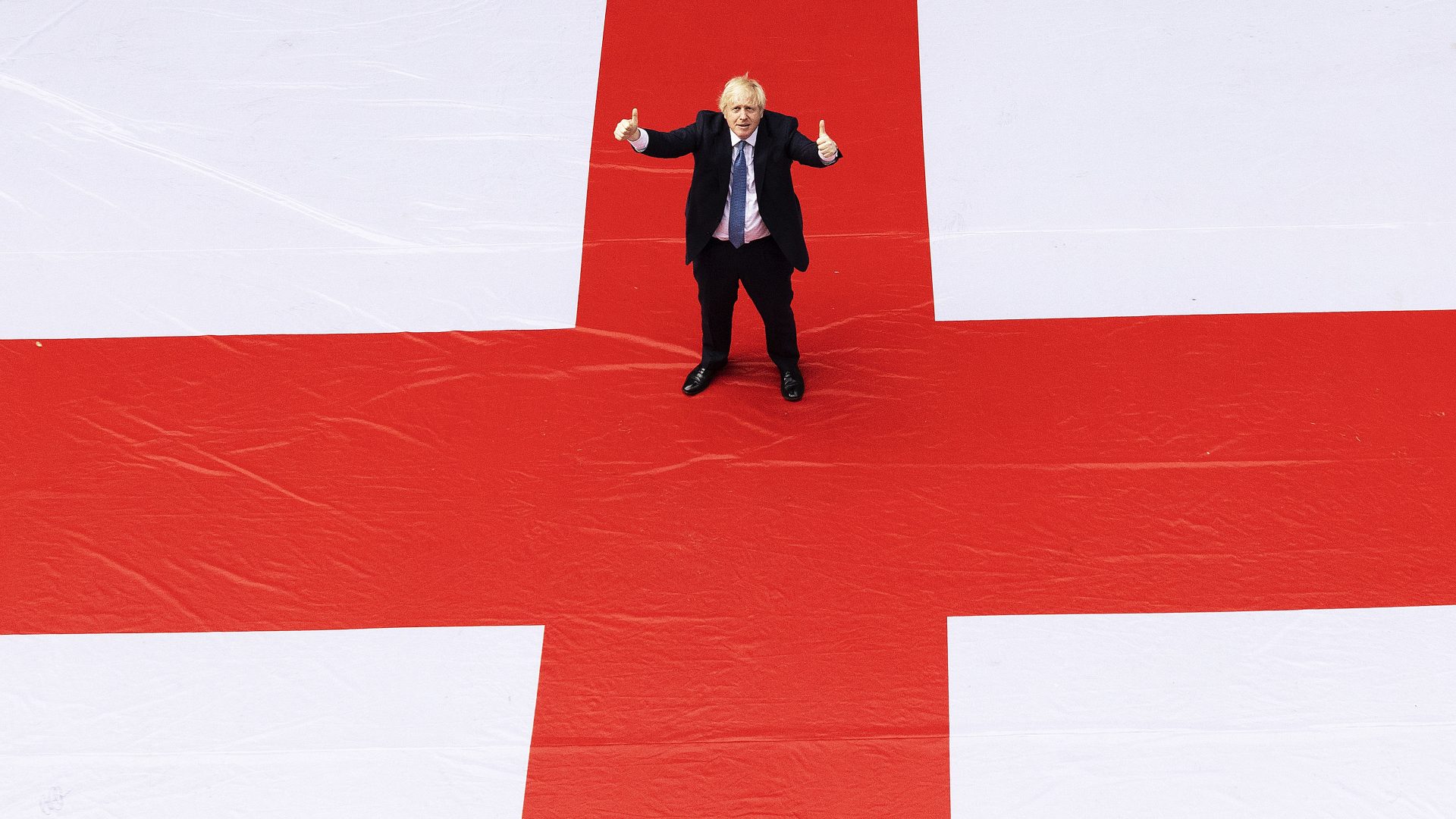It is perhaps when Sir John Major reminds you that his father was a figure from the Victorian era that you better understand his rather old-fashioned speaking style. Major Senior, born in 1879, was almost my age now when Major Junior entered the world, and frankly, the very thought of becoming a father again into my mid-60s fills me with the same dread as the (thankfully laughable) notion that Boris Johnson’s political career is still breathing.
Major, now a sprightly octogenarian, has views of his fellow former prime minister not wholly unadjacent to my own. They may be expressed more subtly, but check out his “In Democracy We Trust?” speech from last February, and you will see what I mean. Yet how splendidly did he put Johnson down when my podcast co-presenter Rory Stewart invited him to assess the “dignity and honesty” of the never honourable former member for Uxbridge and South Ruislip.
The question was, to use a term from the sport with which Major has a lifetime obsession, like a full toss offered up to be hit over whichever part of the boundary he fancied. “I don’t think I will,” he offered. “I really don’t want him to continue to be part of the conversation. He would wish to be part of the conversation but I would wish to look forward.” So polite. Brutal.
Of course when the Privileges Committee report came out, rightly it was big news. It is not every day that a former prime minister is found guilty by parliament of lying to parliament. Indeed it has never happened before. But Major is right. The less we hear from and of Johnson now, the better for all of us.

Rory Stewart was in mischievous mode, not only trying to get one former Tory leader to lay into another, but giving our guest ample opportunity to lay into me, over the attacks mounted upon John Major when my job was to help Tony Blair oust him from high office. Again, he resisted, preferring to offer something of a justification, saying that Labour were so scarred by successive defeats, they felt 1997 was win at all costs or face oblivion and hence, they – err, we, I – were “ruthless.”
He was very generous with his time, so much so that we are putting the interview out over two episodes of The Rest Is Politics LEADING this week and next. And though he is restrained about Johnson, and about my vigorous approach, he has plenty to say about his life and times, and judging by the reaction of our young production team, I think a new generation will enjoy getting to know more about our last non-university educated prime minister.
Major makes a brief appearance in his old “grey man” puppet form in the new Spitting Image show which has opened in London’s West End. The main targets, however, are current senior politicians, a few random celebs, and the Royals. (If any friends of Prince Andrew are reading, advise him to stay away, or send a lawyer, though I fear from the brutality of the script that he has reached the “no reputation to defend” stage of his life, in which he has been joined by Johnson.)
Rishi Sunak is a posh schoolboy bewildered to be there with big boys like Joe Biden and Donald Trump. Johnson is… oh, sorry, we’re not talking about him. Dominic Raab is a psycho, Michael Gove a duplicitous three-footer, Jacob Rees-Mogg a nine-foot dinosaur, while Suella Braverman vies with Meghan Markle as chief pantomime villain, and wins hands down.
“God, isn’t she vile?” muttered the woman in the row behind me. That’s how good satire works best. The serious point settles in the mind as the laughter dies down.
The staging of the show is complicated, and impressive, and the same goes for James Graham’s new play at the National Theatre. Only just turned 40, James has a string of remarkable stage and TV dramas already to his name, and with Dear England, he has gone and done it again.
He is not even a football fan, yet has made a fantastic piece of theatre out of the story of England’s history in penalty shoot-outs, with Gareth Southgate (Joseph Fiennes, mind-blowingly good) as the main character, and the narrative arc his journey from penalty-misser against Germany in 1996 to penalty successes (and failures) as England manager.
James is a friend of mine, indeed he and I have been working on a possible series (see end of item), and when I saw him at the interval, he was keen to know if I felt the football scenes worked. They do, and that alone is a triumph of staging and direction. Asking actors to be convincing as footballers is like asking footballers to be convincing as surgeons or airline pilots. There are skills involved that cannot easily be aped.
But they pull it off. The Harry Kane character is a mix of comic and tragic, but ultimately good and hugely lovable. The actor playing Jordan Pickford has the goalkeeper’s mannerisms down to a tee. The dressing-room banter is strong. And when we come to the penalty misses by Marcus Rashford, Jadon Sancho and Bukayo Saka in the final of Euro 2020, you can feel the emotions of that night surging through the audience yet again.
There is plenty of politics weaving in and out of the script and whether, like me, you are a football fanatic, or, like my partner Fiona, you are whatever the opposite of a football fanatic may be, I guarantee you will enjoy it. The James Graham genius rolls on… may the bidding for our Good Friday Agreement series begin.
When the British ambassador to the US read out a message from the Queen at a church service in New York after the September 11 attacks of 2001 – “Grief is the price we pay for love” – Bill Clinton turned and asked me: “Did you write that?”
“No,” I said.
“Find out who did, and hire him.”
I had a similar thought when I was attending an event hosted by the 93% Club, which exists to build networks, confidence and social and economic power among the 93% majority who use state schools, to counter the unfair advantages used and often abused by the 7% who are privately educated.
“The whole purpose of the top private schools,” said Matt Barbet, former TV presenter turned PR man, who was educated at a comprehensive in Wales, “is to have a world in which privilege is bought, and entitlement is taught.”
Privilege bought, entitlement taught. Brilliant. Clinton would love it. We both made the point that without their “privilege bought, entitlement taught” upbringing people like Johnson and Rees-Mogg would never get near the top of the pile.
That thought chimes exactly with the sentiment of the best recent letter to The Times, from John Claughton, a former master at Eton. “Perhaps its most important mission,” he said of the school where he taught from 1984 to 2001, “will be to ensure that its pupils are saved from the sense of privilege, entitlement and omniscience that can produce alumni such as Boris Johnson, Jacob Rees-Mogg, Kwasi Kwarteng and Ben Elliot, and thereby damage a country’s very fabric.”
The 93% Club was founded by Sophie Pender, a working-class young woman who struggled at Bristol University, not least with the attitudes of the sizeable minority (more than a third) who had gone to private schools. Seeing how they used the networks their background gave them, she decided to do the same. Her club is growing, and she has joined my list of people who disprove the cynical myth that “one person can’t make a difference on their own.” They can. She is.




